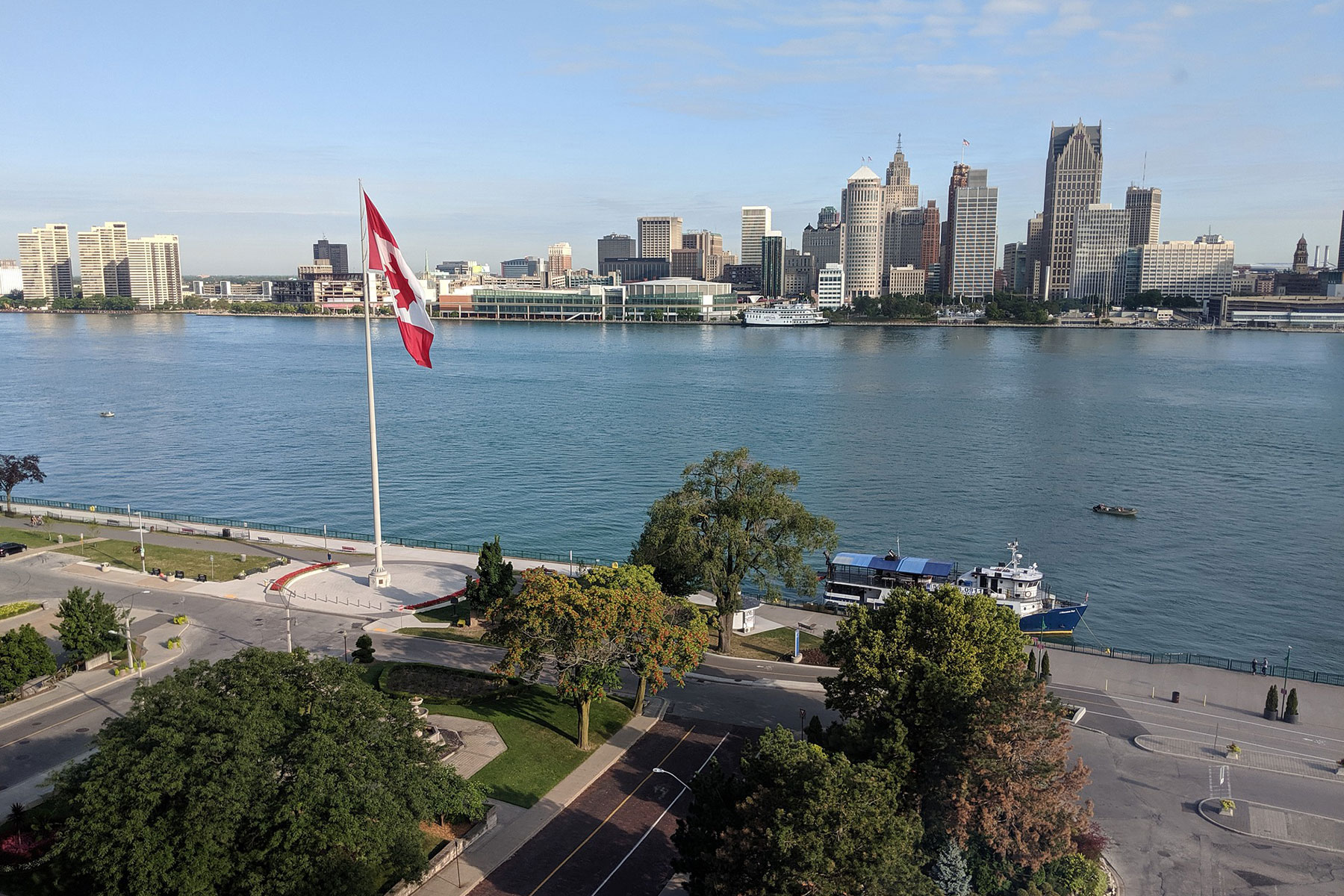How To Immigrate To Canada As A Refugee

How To Immigrate To Canada As A Refugee: Canada is a popular travel destination for people seeking safety from persecution and hardship because of its reputation for having an open and inclusive society. Nonetheless, the immigration procedure for refugees to Canada can be difficult and confusing. It is crucial for people applying for asylum to be informed, and ready, and to get help navigating the system from a professional. Enough Info

Detailed instructions on how to immigrate to Canada as a refugee are provided on this page, including details on the requirements, the Canadian system for determining if someone is a refugee, how to prepare for a refugee hearing, and the difficulties that refugees encounter after they get there.
This manual will provide you with a comprehensive overview of the refugee immigration process in Canada, regardless of whether you are a refugee seeking asylum or professional helping refugees.
Read Also: How To Immigrate To Canada By Buying A Business
FAQs & Answers On How To Immigrate To Canada As A Refugee
1, Who is accepted as a refugee in Canada?
Both domestic and foreign legal systems in use employ this term. A person must be outside of their place of origin and have a well-founded fear of persecution due to their race, religion, nationality, membership in a specific social group, or political beliefs in order to fit the description. How To Avoid Distractions While Studying
2, How long does it take a refugee to get to Canada?
The estimated wait periods for refugee claims are 24 months and for refugee, appeals 12 months. For the previous two years, average wait times have mostly stayed constant.
3, In Canada, are jobs available to refugees?
To work in Canada as a refugee claimant, you require a work permit and a Social Insurance Number (SIN). To begin, submit a work permit application to Immigration, Refugees, and Citizenship Canada (IRCC). You can apply for a Social Insurance Number if your work permit is accepted (SIN).
Eligibility Criteria for Refugee Immigration
The Canadian Immigration and Refugee Protection Act and the United Nations Convention Relating to the Status of Refugees both define the requirements for refugee immigration to Canada.
An individual must fit the Convention’s definition of a refugee in order to be given consideration for refugee status in Canada. A person is considered a refugee if they have a legitimate fear of being persecuted in their home country because of their race, religion, nationality, political stance, or participation in a certain social group.
An individual must also be approved by the United Nations High Commissioner for Refugees (UNHCR) or have the UNHCR refer them to Canada in order to qualify for refugee status in Canada. However, there are several exclusionary conditions that may bar someone from being given consideration for refugee status in Canada. They include posing a threat to Canada’s national security, being a felon, or having committed a significant non-political crime. How To Apply For Schengen Tourist Visa From Nigeria
A person may also not be eligible for refugee status in Canada if they have already received asylum in another nation or if their claim was previously denied in Canada. It is significant to highlight that the requirements for receiving refugee status in Canada are intricate and dynamic. Thus, it is advised to look for expert assistance when deciding if you fit the requirements and when navigating the refugee immigration process.
Read Also: How To Immigrate to Canada as a Physician
The Canadian Refugee Determination System
The procedure by which individuals requesting asylum in Canada can have their claim evaluated and decided is known as the Canadian refugee determination system. The system is created to offer a quick and fair procedure for people looking for protection in Canada.
An individual’s claim for refugee status is the first step in the procedure. The Immigration and Refugee Board of Canada (IRB) is then entrusted with reviewing the claim to determine whether the applicant qualifies as a refugee under the terms of the Canadian Immigration and Refugee Protection Act and the United Nations Convention Relating to the Status of Refugees.
The claimant has the chance to present their case and offer evidence in support of it at the IRB hearing, including both oral testimony and written documentation. The IRB may also call witnesses to give testimony and additional information, and the claimant may be represented by a lawyer or representative.
The IRB will decide on the claimant’s status as a refugee after the hearing. The person will be recognized as a Convention refugee and be qualified to apply for permanent residence in Canada if the claim is accepted. If the application is denied, the person may be able to challenge the ruling before the IRB’s Refugee Appeal Division, or they may be forced to leave Canada. How To Relocate To Canada From South Africa
Although it can be confusing and daunting, the Canadian system for determining whether a person is a refugee is intended to offer a fair and effective procedure for those who seek asylum in Canada. It is crucial that people have expert assistance when navigating the system and getting ready for their hearing.
Read Also: How To Immigrate To Canada Without a Job Offer
Preparing for the Refugee Hearing
The Canadian procedure for determining refugee status includes a crucial phase called preparation for a hearing. It is crucial to be well-prepared for the hearing because it is the claimant’s chance to argue their case and show supporting documentation.
The collection of all required paperwork is one of the most crucial steps in the preparation process for a refugee hearing. In addition to any other pertinent papers that support the claimant’s claim of being a refugee, such as medical records, police reports, or documentation from human rights groups, this may include personal identifying documents such as a passport or birth certificate.
Preparing for a refugee hearing also requires counsel by a lawyer or advocate. A representative or lawyer can give advice on the legal procedure, assist the claimant in getting ready for the hearing, and represent the claimant’s interests while the hearing is going on.
It is crucial for the claimant to prepare for the hearing itself in addition to compiling the required paperwork and retaining counsel. This can entail checking the claimant’s testimony to make sure it is precise and well-written and preparing responses to any queries the IRB might have. Overall, being ready for a refugee hearing is an important phase in the selection of refugees in Canada. Claimants can improve their chances of a favorable outcome and safeguard their future as refugees in Canada by being well-prepared.
After the Refugee Hearing
The Immigration and Refugee Board of Canada (IRB) will make a determination about the claimant’s claim for refugee status following the conclusion of the refugee hearing. The person will be recognized as a Convention refugee and be qualified to seek permanent residence in Canada if the claim is accepted. If the application is denied, the person may be able to challenge the ruling before the IRB’s Refugee Appeal Division, or they may be forced to leave Canada.
Even for those who are accepted, the process of being resettled as a refugee in Canada can be difficult. Many immigrants struggle with language challenges, job search difficulties, and acclimating to life in a foreign country. It is crucial for refugees to seek aid from local service providers and organizations, who can help with settlement, language instruction, and other requirements.
The Canadian government also provides a variety of services and programs, such as the Interim Federal Health Program and the Resettlement Assistance Program, to aid refugees in settling in and assimilating into Canadian society.
After being granted refugee status, refugees can also petition for permanent residence in Canada. As a result, they are given more legal protections and have access to more services and benefits, including the freedom to travel outside of Canada and to bring family members to Canada. How To Immigrate To Canada As A British Citizen
In conclusion, the process of applying for refugee status in Canada does not conclude with the hearing. It is crucial for refugees to look for assistance and be aware of the services and programs offered to aid in their integration into Canadian society.
Refugees may effectively establish a new life in Canada and flourish as respected members of the community with the correct assistance and tools.
READ Also: How to Immigrate to Canada as a Nurse
Challenges Refugee Immigrants Face
Refugee immigrants in Canada confront a variety of difficulties when resettling. Many of these difficulties include:
Language barriers:
Many refugees come from nations where English or French are not the main languages, making it challenging for them to interact with Canadians and learn the culture.
Finding employment:
Many refugees encounter obstacles to employment, including a lack of Canadian job experience, prejudice, and language challenges.
Housing:
For refugees, finding an inexpensive and suitable home can be difficult, especially in areas where housing costs are high. How to Travel to Fiji Island (Visa free for 4 months)
Mental health and trauma:
Many migrants have gone through terrible experiences, which might be the cause of their mental health problems.
Cultural adjustment:
For refugees, adjusting to life in a new nation can be challenging since they may feel lonely, homesick, and lost.
Navigating the settlement process:
The immigration procedure to Canada may be difficult and stressful, especially for refugees who are not familiar with the country’s legal framework.
Reuniting with family members:
Many refugees have to go through a protracted and difficult procedure to reunite with their family members in Canada. How To Make Beet-root Juice(Step by Step)
Conclusion
Despite these obstacles, a lot of immigrants are successful in assimilating into the Canadian society and starting new lives. For aid with the settlement process, language instruction, and other requirements, it is crucial that refugees turn to community groups and service providers. Refugees may flourish in Canada and overcome their obstacles with the correct assistance and tools. How To Travel To Gambia (Visa free for 90 days
Read Also: Immigrate To Canada As An Artist(Step By Step)




